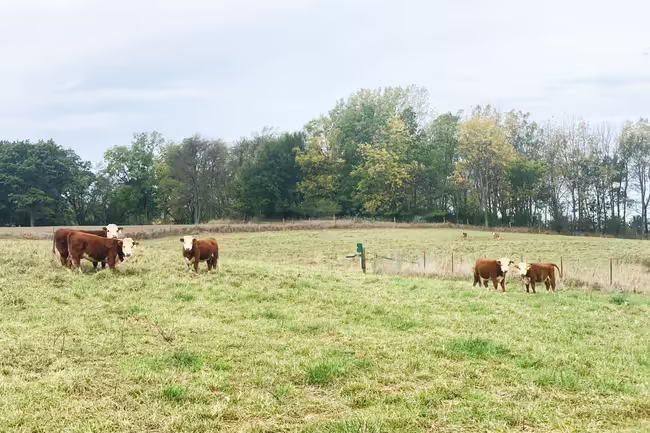
Join University of Illinois Extension Natural Resources, Environment, and Energy Educator Jay Solomon for the final program in the Getting Started with Livestock Webinar Series, Understanding Farm Scale Manure Management. This webinar will take place on Thursday, April 13, 2023 at 6 p.m. via the Zoom platform. There is no cost to attend, but you must pre-register by April 12 to receive the Zoom link. To register or for more information call us at 815-858-2273 or visit us online at go.illinois.edu/jsw.
One of the most overlooked parts of planning and starting a smaller livestock operation is a manure management plan. All operations, from grazing to confinement systems, need to put some considerations into how manure will be handled. While manure can be a valuable nutrient resource for forage and crop production, when not managed correctly it can become a significant source of pollution and liability.
Grazing animals tend to spread the manure across the pasture, effectively recycling the nutrients eventually back into the plants. However, grazing systems may include handling facilities, quarantine and treatment pens, sacrifice areas, etc. Manure deposited in these areas will need to be managed properly.
A frequent misconception is that state regulations apply only to the larger operations. Jay will discuss how these rules and regulations apply to even the smallest of operations and how to avoid ending-up on the receiving end of a notice of violation or other legal actions.
Pens, stalls, and dry lots are examples of management systems where a manure management plan becomes very important to the long-term success of the operation. The manure will need to be contained and land applied at agronomic rates. During this webinar Jay will discuss the difference between pastures, exercise areas, and dry lots. The classification of an area has a major impact on how manure needs to be managed.